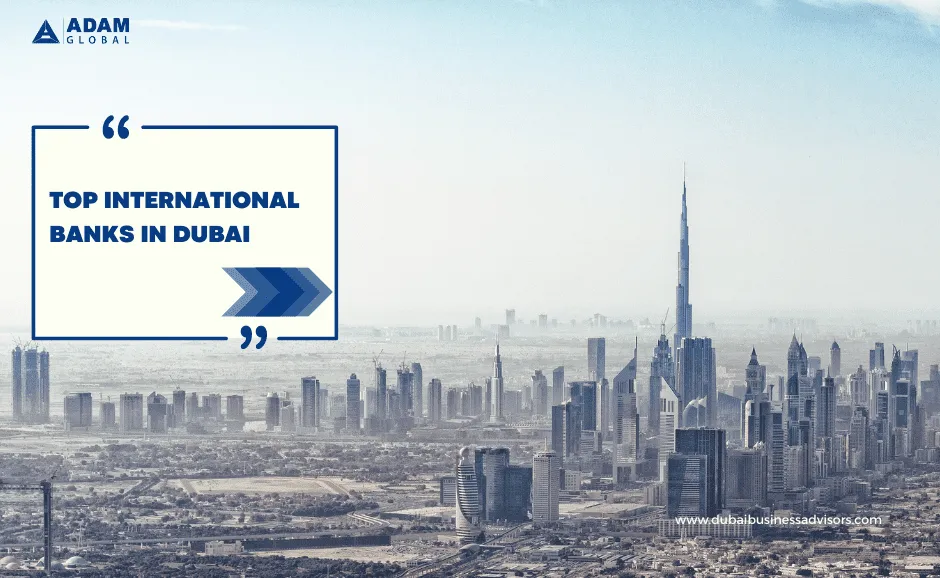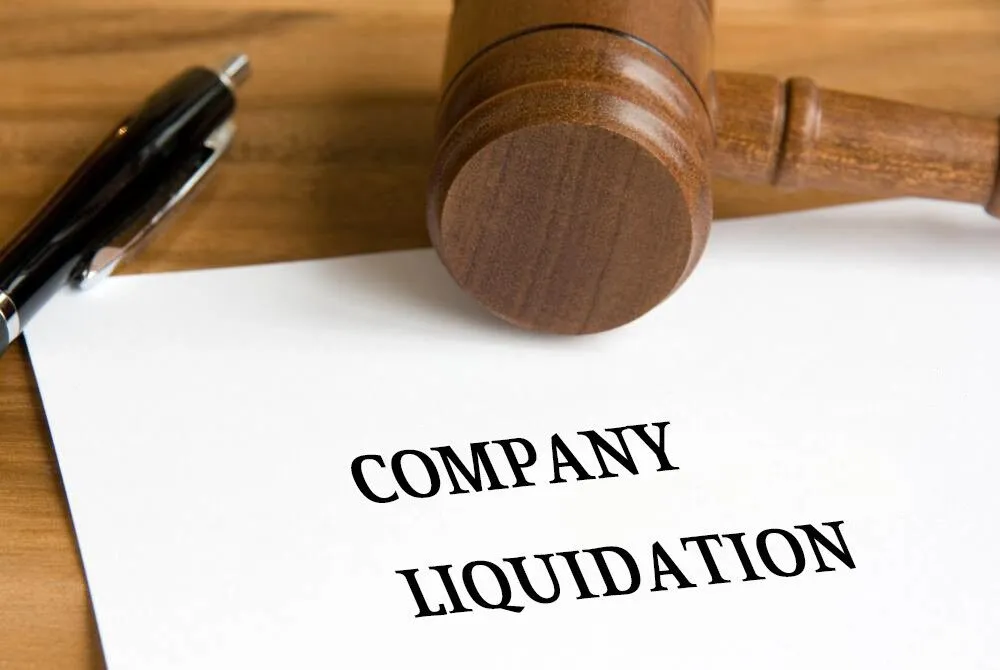Dubai, a global trade epicentre, boasts a strategic position that few can rival. Its world-class ports and robust infrastructure underscore its prominence in the logistics sector. As the city witnesses a surge in e-commerce and international trade, the warehousing and storage industry finds itself at the cusp of unprecedented growth.
For entrepreneurs wondering “How to start a Warehouse and Storage Company,” Dubai is not just a location—it’s the destination. With its pro-business environment, tax incentives, and growing demand, the city offers a fertile ground for such ventures to thrive and prosper.
The future of warehousing in Dubai looks brighter than ever, especially after the COVID pandemic. With the world leaning more towards e-commerce and the need for storage spaces skyrocketing, Dubai’s strategic location makes it a prime spot for this business.
Process to Start a Warehousing and Storage Business in Dubai with Adam Global
Starting a warehousing and storage business in Dubai is a promising venture, especially with the city’s strategic position as a global trading hub. With guidance from Adam Global, a renowned business consultancy, the process becomes even more streamlined. Here’s a step-by-step guide.
u003cstrongu003eMarket Research:u003c/strongu003e
Understand the warehousing landscape in Dubai. Identify the demand, key players, and potential areas for your warehouse.
u003cstrongu003eDefine Business Operations:u003c/strongu003e
Decide on the specific warehousing and storage services you plan to offer.
u003cstrongu003eChoose a business name and Economic Zone:u003c/strongu003e
Pick a unique business name and decide between the mainland and free zones based on your target market and business needs.
u003cstrongu003eTrade Name Registration:u003c/strongu003e
Register your chosen business name with the relevant authorities.
u003cstrongu003eLicense Application and Fee Payment:u003c/strongu003e
Apply for the necessary licenses and pay the associated fees. Adam Global can assist in ensuring you choose the right license based on your business activities.
u003cstrongu003eVisa Application:u003c/strongu003e
Secure visas for yourself, your partners, and your employees.
u003cstrongu003eOpen a Bank Account:u003c/strongu003e
Establish a corporate bank account to manage your finances.
u003cstrongu003eOperationalize and provide continuous support:u003c/strongu003e
With everything in place, kickstart your operations. Adam Global can provide continuous support in areas like renewals, expansions, and compliance.
Benefits of Warehousing and Storage Company Setup in Dubai
- Strategic Hub:
Centrally located between East and West, Dubai is a global trade nexus, ensuring consistent warehousing demand.
- Top Infrastructure:
Modern ports, airports, and roads facilitate seamless goods movement, enhancing warehousing efficiency.
- Tax Perks:
Enjoy tax-free zones, zero import/export duties, and no personal income taxes, maximizing profits.
- E-commerce Boom:
The rising e-commerce trend in Dubai amplifies the need for storage and distribution centers.
- Safety First:
Dubai’s high security ensures goods safety, building trust and boosting business reputations.
- Free Zone Advantage:
Specialized logistics-free zones offer 100% foreign ownership and profit repatriation.
Major Hubs for Starting Warehouse and Storage Business in Dubai
Dubai Commerce City:
A new-age global trade hub, Dubai Commerce City caters specifically to the e-commerce market. It offers state-of-the-art infrastructure, and digital services, and is strategically located to serve both local and international markets.
Dubai South:
Previously known as Dubai World Central, Dubai South is a major logistics district. It’s close to the Al Maktoum International Airport, making it ideal for businesses that rely on air freight. With dedicated logistics corridors and modern facilities, it’s a top choice for warehousing businesses.
Sharjah Airport Free Zone (SAIF Zone):
Located near the Sharjah International Airport, SAIF Zone offers excellent connectivity and a range of facilities tailored for warehousing and logistics businesses. Its strategic location ensures easy access to major global markets.
Hamriyah Free Zone:
Situated in Sharjah, Hamriyah Free Zone is one of the Middle East’s fastest-growing industrial areas. It offers deep-water access, making it ideal for businesses that rely on sea freight. With its vast land area, it’s perfect for large-scale warehousing operations.
Khalifa Industrial Zone Abu Dhabi (KIZAD):
KIZAD is a cornerstone of Abu Dhabi’s industrial strategy. With direct access to sea, road, air, and rail networks, it offers unparalleled connectivity. Its modular clusters are perfect for warehousing businesses of all sizes.
Ras Al Khaimah Economic Zone (RAKEZ):
RAKEZ is a powerhouse of industrial activity in the northern part of the UAE. It offers competitive pricing, and state-of-the-art facilities, and is strategically located to serve both the eastern and western markets.
Cost of Starting a Warehousing and Storage Business in Dubai
Starting a warehousing and storage business in Dubai is a lucrative venture, but understanding the associated costs is crucial for effective planning. Here’s a breakdown:
Initial Licensing:
Depending on the chosen zone, licensing fees can range from AED 10,000 to AED 50,000 annually.
Warehouse Lease:
Rental costs vary based on location and size. On average, leasing a warehouse in a prime location can cost between AED 40 and AED 70 per square foot annually.
Operational Costs:
This includes utilities, maintenance, and other day-to-day expenses. Expect to budget around AED 20,000 to AED 50,000 annually.
Staff Salaries:
Depending on the scale, salaries can range from AED 200,000 to AED 500,000 annually for a medium-sized warehouse.
Equipment and Technology:
Investing in forklifts, shelving, and warehouse management systems can cost between AED 100,000 and AED 500,000, depending on the scale and sophistication.
Visa & Immigration:
Visa costs for staff can range from AED 3750 to AED 6,000 per person, including medical and Emirates ID.
Insurance:
Warehouse insurance can range from AED 10,000 to AED 30,000 annually, based on the value of stored goods and the warehouse’s size.
While these are average estimates, it’s essential to consult with local experts or business setup consultants for precise figures tailored to specific business needs. Starting a warehousing business in Dubai is an investment, but with the city’s growth trajectory, the returns can be promising.
Documents Required to Start a Warehousing and Storage Business in Dubai
Embarking on a warehousing venture in Dubai? Ensuring you have the right documentation in place is crucial. Here’s a concise list of the essential documents:
Business Plan:
A detailed outline showcasing your business objectives, strategies, and financial projections.
Passport Copies:
Clear copies of passports of all shareholders, directors, and managers.
Visa/Residency Proof:
For foreign investors, a copy of the UAE visa or residency permit is required.
No Objection Certificate (NOC):
If the shareholder or director is a resident of the UAE, an NOC from the current sponsor is necessary.
Trade Name Reservation:
Proof of trade name registration, ensuring your chosen business name is unique and available.
Initial Approval Certificate:
A certificate from the Department of Economic Development (DED) or relevant free zone authority indicating initial business setup approval.
Memorandum of Association (MOA):
A legal document outlining the company’s structure, objectives, and roles of shareholders. If setting up in a free zone, an MOA with the respective free zone authority is required.
Lease Agreement:
A documented agreement showcasing the terms and conditions of your warehouse lease, including the physical address.
Ejari Registration:
A registration confirming the lease agreement is essential for obtaining the trade license.
External Approvals:
Depending on the nature of the goods stored, approvals from specific departments or ministries might be required.
Gathering these documents is the first step towards establishing your warehousing business in Dubai. It’s always advisable to consult with local experts to ensure a smooth and compliant setup process.
How Adam Global Can Assist in Your Warehousing and Storage Company Setup
Expert Guidance:
Navigate Dubai’s business landscape with insights from seasoned professionals.
Licensing and Registration:
Streamline the process of obtaining necessary licenses and permits, ensuring compliance.
Documentation Assistance:
Simplify the paperwork maze with expert help in gathering and submitting essential documents.
Strategic Consultation:
Benefit from tailored strategies to position your warehousing business for success.
Continuous Support:
From initial setup to expansion, Adam Global offers end-to-end assistance, ensuring your venture thrives.
With Adam Global, you’re not just starting a business; you’re building a legacy in Dubai’s warehousing sector.
FAQ’s
u003cstrongu003eQ: Why is Dubai considered a prime location for warehousing businesses?u003c/strongu003e
u003cstrongu003eA:u003c/strongu003e Dubai’s strategic location between the East and West, coupled with its world-class infrastructure and pro-business environment, makes it a global trading hub, driving demand for warehousing.
u003cstrongu003eQ: What are the primary costs involved in starting a warehousing business in Dubai?u003c/strongu003e
u003cstrongu003eA:u003c/strongu003e Major costs include licensing fees, warehouse lease, operational expenses, equipment investment, staff salaries, and insurance.
u003cstrongu003eQ: How can I ensure my warehousing business complies with Dubai’s regulations?u003c/strongu003e
Consulting firms like Adam Global provide expert guidance to ensure businesses adhere to local regulations and standards.
u003cstrongu003eQ: Are there specific zones in Dubai tailored for warehousing and logistics businesses?u003c/strongu003e
u003cstrongu003eA:u003c/strongu003e Yes, areas like Dubai South, Dubai Commerce City, and various free zones like RAKEZ and KIZAD are tailored for warehousing and logistics ventures.
u003cstrongu003eQ: How long does it typically take to set up a warehousing business in Dubai?u003c/strongu003e
u003cstrongu003eA:u003c/strongu003e With all documents in place, the process can take anywhere from 2 weeks to 2 months, depending on the business’s nature and chosen location.
u003cstrongu003eQ: Do I need specific approvals based on the type of goods stored in my warehouse?u003c/strongu003e
u003cstrongu003eA:u003c/strongu003e Yes, certain goods, especially hazardous or perishable items, may require special approvals from relevant departments.
u003cstrongu003eQ: Can Adam Global assist with post-setup services like renewals and expansions?u003c/strongu003e
u003cstrongu003eA:u003c/strongu003e Absolutely! Adam Global offers end-to-end support, from initial setup to renewals, expansions, and continuous business consultation.
u003cstrongu003eQ: Is there a demand for tech-driven or smart warehouses in Dubai?u003c/strongu003e
u003cstrongu003eA:u003c/strongu003e Yes, with the rise of e-commerce and advanced logistics solutions, there’s a growing demand for smart warehouses equipped with the latest technology.



